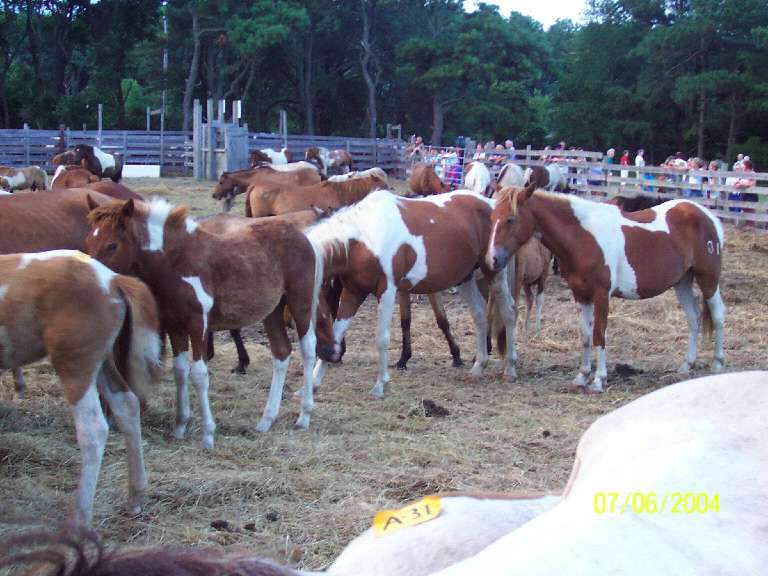Course Schedule
Sept. 1 Introductions; Exercises;
Project Planning; intro to Writing
Forum via Townhall; begin reading Best
American Magazine Writing (BAMW)
Sept. 8 Have read Introduction
and Paterniti, Sullivan, Goldberg, Cahill, and Smith essays from BAMW ; workshop project plans; hand in folders
Sept. 14 LAST DAY TO ADD CLASSES
Sept. 15 Have read Fadiman,
Fallows, Frazier, Pollitt,
Bing, and Hitchens articles from BAMW; discussion and exercises;
workshop; prep for Fall for the Book
Sept. 18-23 Fall for the Book
Sept. 22 Class attends Fall for the
Book Events
Sept. 29 Have read Gopnick, Flanagan,
Wolcott, Hall, Gilbert, and Tietz articles from BAMW; reprise
of Fall for the Book; workshop; hand
in folders
Oct. 1 LAST DAY TO DROP CLASSES WITHOUT
DEAN'S PERMISSION
Oct. 6 The Visual and/in the Text:
Photos, Drawings, Layout; workshop on new material
Oct. 13 Workshop; Mini "Read Around"
Oct. 20 Writing for
Publication--Identifying Markets; have read assigned sections of The Writer's Market and browsed Nonfiction Links; begin Market
Identification assignment; hand
in folders
Oct. 27 Visiting Writer: Nick Reding
(have read assigned handout from his work); workshop new material
Nov. 3 Visiting Writer: Wendi Kaufman;
workshop new material
Nov. 10 Brief "Market Identification"
reports; hand in folders
Nov. 17 Readying the Submission:
Queries, MS Form, Etc.; have read assigned sections of The Writer's Market and browsed appropriate sites; workshop
Nov. 24-25 Give Thanks
Nov. 31 Workshop; begin Portfolio
Read-Around
Dec. 7 - Continue Portfolio
Read-Around; submit final
portfolio; course evaluation
Portfolos will be available for
pick-up from my office beginning Dec. 14.
Assignments
YOUR
EVOLVING FOLDER OF WORK IN PROGRESS: This is the heart of
the course, your weekly development of one or two projects,
representing an average of SIX HOURS A WEEK of conscientious research,
drafting, and/or revision. You
will hand in your folder every three weeks (see the Schedule of
Classes)
for my comments, and you will receive feedback almost every week from
your
fellow writers in the class. Each week's work must be either newly
drafted material or substantial revision (NOT just editing) of previous
writing (except during the last two weeks of the course, in which you
will be fine tuning your projects).
Every three weeks, when you hand in your folder, it should be
accompanied
by a one-page "process log" entry, in which you describe your work
during the period and analyze your growth as a writer (e.g., new things
you've tried, what's worked, what you want to grapple with next). You
will keep all of your work in progress in a two-pocket folder, which
will include, in addition to your writing, my summary comments on every
three weeks' worth of work. (I will make some comments on the drafts
themselves, also.) See "Class
Participation" below regarding credit for this ongoing development.
BRIEF
"MARKET REPORT" ON A PUBLICATION: In early November (see
Schedule), you will give a brief (no more than 10-minute) report to the
seminar on a publication of your choice that accepts nonfiction
manuscripts. This publication may be the one to which you will direct
one of your projects, but it need not be. The intent of this assignment
is for you
to gain in-depth knowledge of the types and styles of work usually
featured in this publication, as well as its policies and procedures
regarding review of manuscripts. The secondary purpose of the
assignment is for all members of the seminar to increase their
knowledge of a range of publishing venues. Your presentation will be
oral, should include your handing out of copies of the publication, and
should be accompanied by a one-page handout that describes the features
listed above. (If some members of the seminar choose on-line
publications to review, please let us know the URLs in advance of your
giving the report, so that we may view the pages earlier.) (10% of
course credit)
YOUR
FINAL PORTFOLIO: 50% of your final
grade in this seminar will be based on my evaluation of your final
portfolio, which will include (1) your revised, edited, and
professionally-presented projects from
the semester, as based on the work plan we agreed on early in the
course, plus (2) a roughly 750-word
descriptive-evaluative essay of your progress during the semester. The
length and variety of your portfolio will depend on what you have
written during the semester and my discussions with you about portfolio
contents.
ON-LINE
WRITING IN 489: I will be setting up a class forum for
489 on the Townhall server for weekly or b-weekly conversations about
writing
matters or writing exercises. This will be an ongoing way for you to
share bits of your writng with the members of the workshop and your
thoughts about issues, technique, etc. I will give a prompt for the
week--please feel free to suggest topics as we proceed. You will need
to register for Townhall
using your GMU USERNAME AND PASSWORD so that I may be able to add you
to the discussion. We will meet in a computer lab in Innovation hall
for this purpose on Week Two of the semester. Since Townhall is a
web-based program, you will be
able to link to the forum any web writing that you may wish to do for
the course. I define "web writing" for our purposes as true hypertext
and/or multimedia work that requires computer technology for composing
and reading, not linear or linear/graphic text that can be printed,
copied, and brought to class. We'll discuss these issues as you have
questions. (10% of course credit)
CLASS
PARTICIPATION:
30% of your grade will be based on your consistent, active,
enthusiastic involvement in all exercises and activities of the
seminar, aside from the Townhall entries, which earn separate credit.
You'll note from the schedule that principal elements include
your week-by-week substantial development of your projects, the weekly
meetings of your 3-4 person "reading/writing" groups, and
weekly engagement in exercises, practice sessions, discussions, and
"read-arounds"
intended to broaden your repertoire of skills and techniques as a
writer. Absence from the class will mean that you can't earn this
roughly 2% of credit for each class. Participating less than
fully, actively, and collegially will cost you 1% of your final grade
for each
class meeting in which this less than optimum work occurs. Exercises,
etc., cannot be made up.
Grading standards
are as follows:
A = outstanding
work:
among the specific virtues, full, active, cooperative, and imaginative
participation in all activities, exercises, and projects of the course;
prose that consistently demonstrates the characteristics of effective
nonfiction,
as manifest in our readings and as we develop them throughout the
course;
B = very good
work:
full, active, and cooperative participation in all activities,
exercises
and projects; prose that almost always demonstrates the characteristics
of effective nonfiction;
C = satisfactory
work:
full, cooperative participation in all activities, exercises, and
projects;
prose that, with revision, almost always demonstrates the principles of
effective nonfiction;
D = almost
satisfactory
work: almost full, usually cooperative participation in all activities,
exercises, and projects: prose that, with revision, usually
demonstrates
the principles of effective nonfiction;
F = unsatisfactory
work: inconsistent participation in activities, exercises, and
projects;
or prose that, with revision, still fails to demonstrate consistent
application
of the principles of effective nonfiction.
I will give
plusses
and minuses according to GMU policy.
NOTE: A written
project
will receive an F if a student does not participate in every phase of
the
development of the project.
Nonfiction
Links
This part of the page for ENGL 489:001 is always under construction.
I'll
be adding useful links throughout the course, and ask that you bring to
my attention good sites that you discover in your searches.

